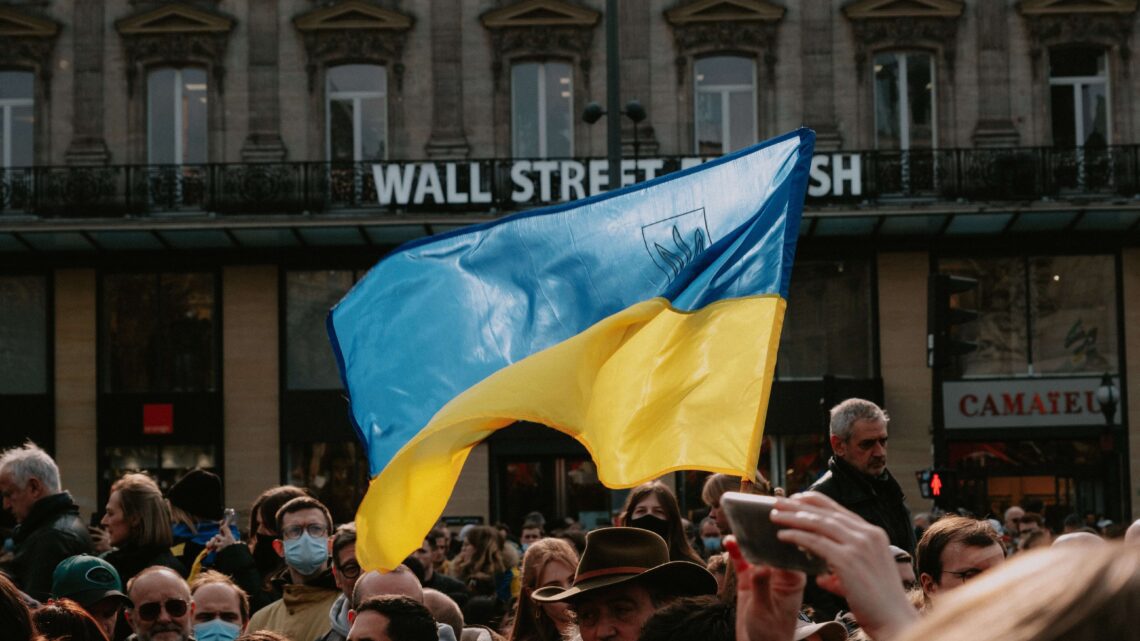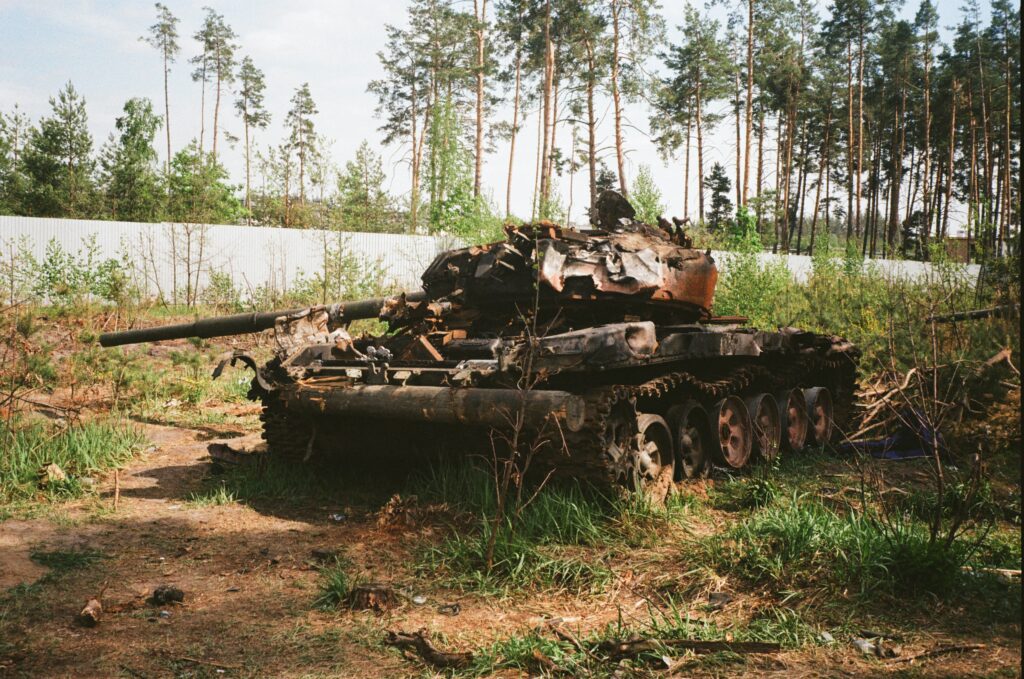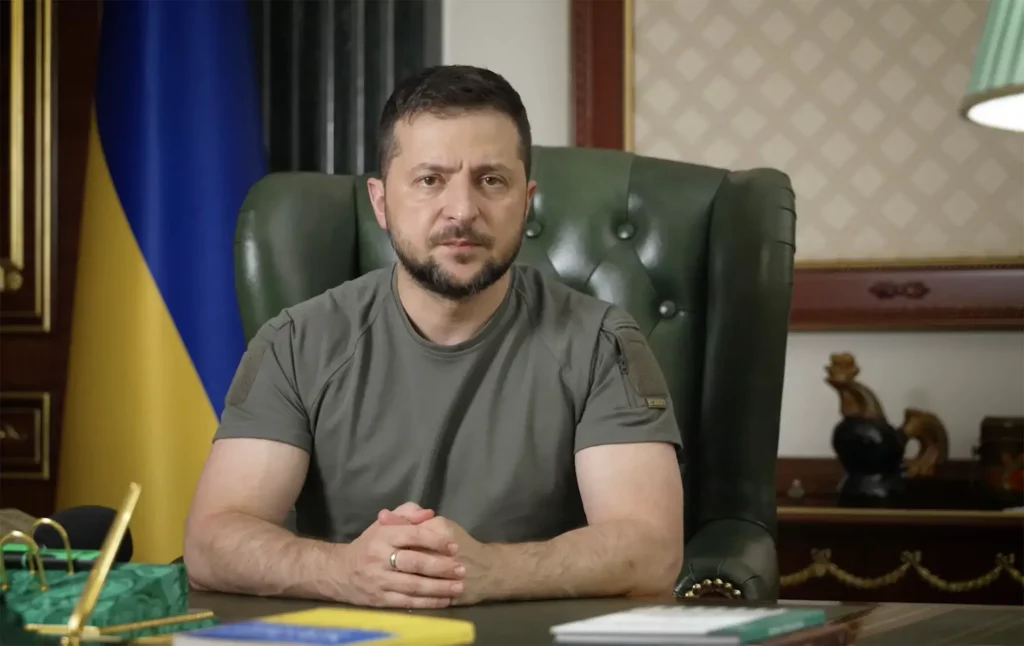
Ecocide in Ukraine: The overlooked environmental costs of war
On Feb. 24, 2022, Vladimir Putin’s Russia engaged in an illegal war of aggression against Volodymyr Zelensky’s Ukraine. In seeking to justify the invasion, Russia frames Ukraine as a historical, cultural and spiritual derivative of the motherland that must be rescued from the locus of alleged genocide committed against civilians in the predominantly Russian-speaking Donbas region. While these accusations have failed to hold true, the war has endured.
With zealous international support, including that of Canada and the United States, Kyiv has levied accusations of war crimes and crimes against humanity amounting to genocide against Moscow over the mass murder of civilians in Bucha, Irpin, Hostomel and Kherson. These claims are widely supported and corroborated. For example, Genocide Watch has documented the indiscriminate and intentional targeting of civilians, civilian infrastructure, mass rape and sexual violence, torture, forced deportation and extrajudicial executions.
Russia denies these accusations and claims these scenes have been staged by Ukraine to tarnish Russia’s reputation. However, a review of Russia’s contentious history from the Holodomor to Crimea shows Russia has “repeatedly brought genocide, forced deportation and totalitarian tyranny to Ukraine.”
In 1948, the United Nations codified genocide as an international crime. It concerns the “intent to destroy, in whole or in part, a national, ethnical, racial or religious group.”
While genocide (genos, “race, people” – latin suffix caedo, “killing”) refers to people, several other “cides” refer to various forms of destruction. Ecocide refers to the widespread destruction of the environment.
Alexandria Kim, who has a master’s degree in political science from the University of Western Ontario, tells Youth Mind, “Although the combination of the terms ecology and genocide produces an intuitive definition for ecocide … the proposed crime and the environmental devastation it entails has long failed to generate the same level of popular support. We’ve seen this manifest in academia and other socio-legal settings.”
In 2021, a panel of 12 lawyers composed a legal definition for ecocide, defining it as “unlawful or wanton acts committed with knowledge that there is substantial likelihood of severe and widespread or long-term damage to the environment being caused by those acts.”
They intended for the definition to be adopted by the International Criminal Court to become the fifth offence under purview, alongside war crimes, crimes against humanity, genocide and the crime of aggression.

According to Prof. Philippe Sands QC, the panel chair, “The four other crimes all focus exclusively on the well-being of human beings. This one, of course, does that, but it introduces a new non-anthropocentric approach, namely putting the environment at the heart of international law, and so that is original and innovative.”
War always bears environmental costs: the destruction of infrastructure, deforestation, water pollution, soil degradation, greenhouse gas emissions from explosives, the depletion of natural resources and the disruption of ecosystems and biodiversity. For example, reports suggest that in the year following the invasion, the carbon footprint of the war almost matched Belgium’s total emissions.
These covert forms of warfare become low-profile killers, with experts fearing an increased long-term risk for cancer and other illnesses among civilians. In the Russo-Ukraine context, there are additional nuclear concerns, with reports documenting Russian soldiers and tanks disturbing contaminated topsoil in the Chernobyl Exclusion Zone.
While some of these costs may be considered inevitable or a natural consequence of war, the disposition of criminality and intentionality that surrounds the Russian offence has re-invigorated the ecocide discourse.
On June 6, 2023, the Nova Kakhovka Dam sustained damage and flooded, killing an undetermined number of people and causing destruction to the surrounding landscape and villages, prompting mass evacuations.
While Russia denies responsibility, Global Rights Compliance indicates that “the attack was highly likely caused by pre-emplaced explosives positioned at critical points within the dam’s structure,” asserting that it is “unlikely that mismanagement alone would explain such catastrophic destruction.”
They also note that the Nova Kakhova Dam flooding is part of a larger “ongoing pattern to deliberately starve civilians and punish those primarily living under opposition control,” adding that “special attention should be paid to the scale of attacks on Ukrainian facilities related to water storage and water supply. Such attacks can potentially be qualified as depriving the civilian population of the means for necessary survival.”
As environmental activist Greta Thunberg said, “Ecocide and environmental destruction is a form of warfare … as Ukrainians by this point know all too well – and so does Russia … and that’s why they are deliberately targeting the environment and people’s livelihoods and homes, and therefore, also destroying lives.”

Although there is no shortage of barriers to the codification and prosecution of environmental crimes, one may hope the growing harms implicating both the environment and human beings may spur greater political will.
According to the Ukrainian government, the war has produced more than $51 billion in environmental damage. This is far from insignificant. War is more than the opposite of human life but of all living things.
It’s important to recognize the global implications of the environmental destruction in Ukraine and the broader ecocide discourse.
When asked why Canadians should care, Thomas Calligaris, who has a bachelor of science in environmental science from the University of Western Ontario, said, “We should care because Canada is a resource-based economy that has arguably produced substantive environmental destruction. We share the same world. Environmental quality in other parts of the world affects ours. We are a closed system.”
The Canadian branch of Stop Ecocide International has produced an open letter on the criminalization of ecocide, calling on Canadians to “change the rules” and “introduce a new crime at the international level to ensure the lasting protection of all life on Earth.” For more information, check out their podcast on “Ecocide and its relevance to human, cultural and environmental rights.”
About the author

Miriam Hanson
Miriam is a writer for Youth Mind. She is a graduate student at Western University studying political science and international relations. She has written for Women Quest with the Ontario Learning Development Foundation (OLDF), Sidebar with the Diversified Dispute Resolution Institute of Canada, and Feminism Unfiltered. When she’s not writing, you’ll find her planning her next trip itinerary. She’s happy to be back writing with the OLDF team this summer!






